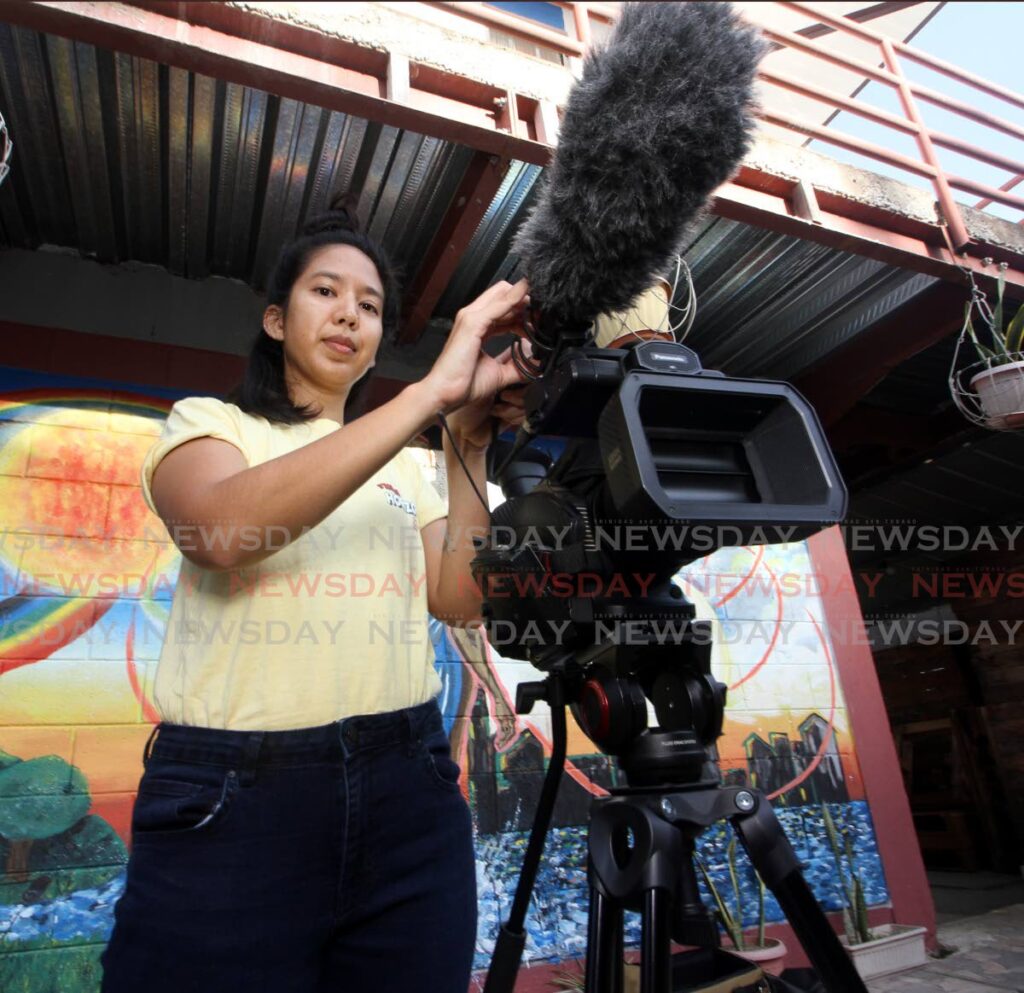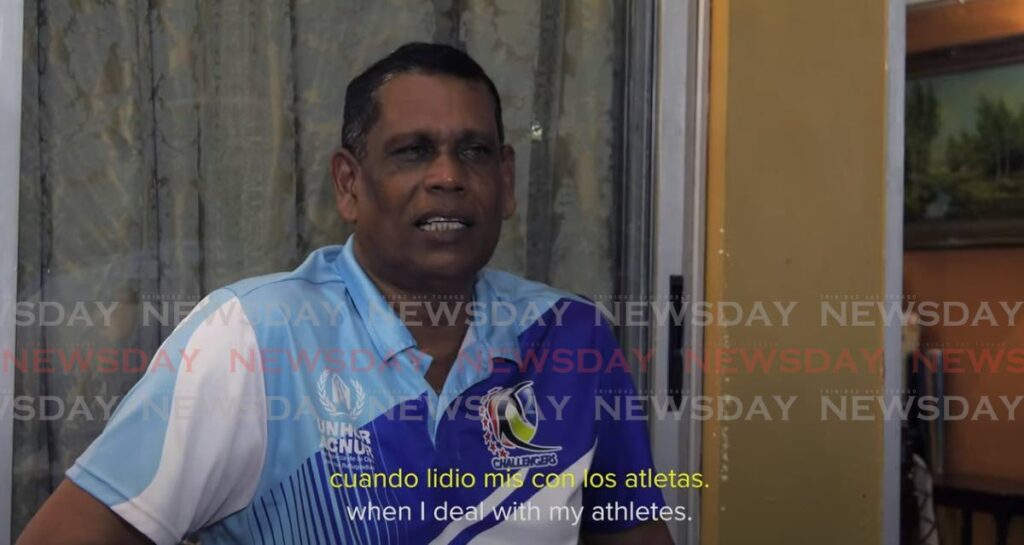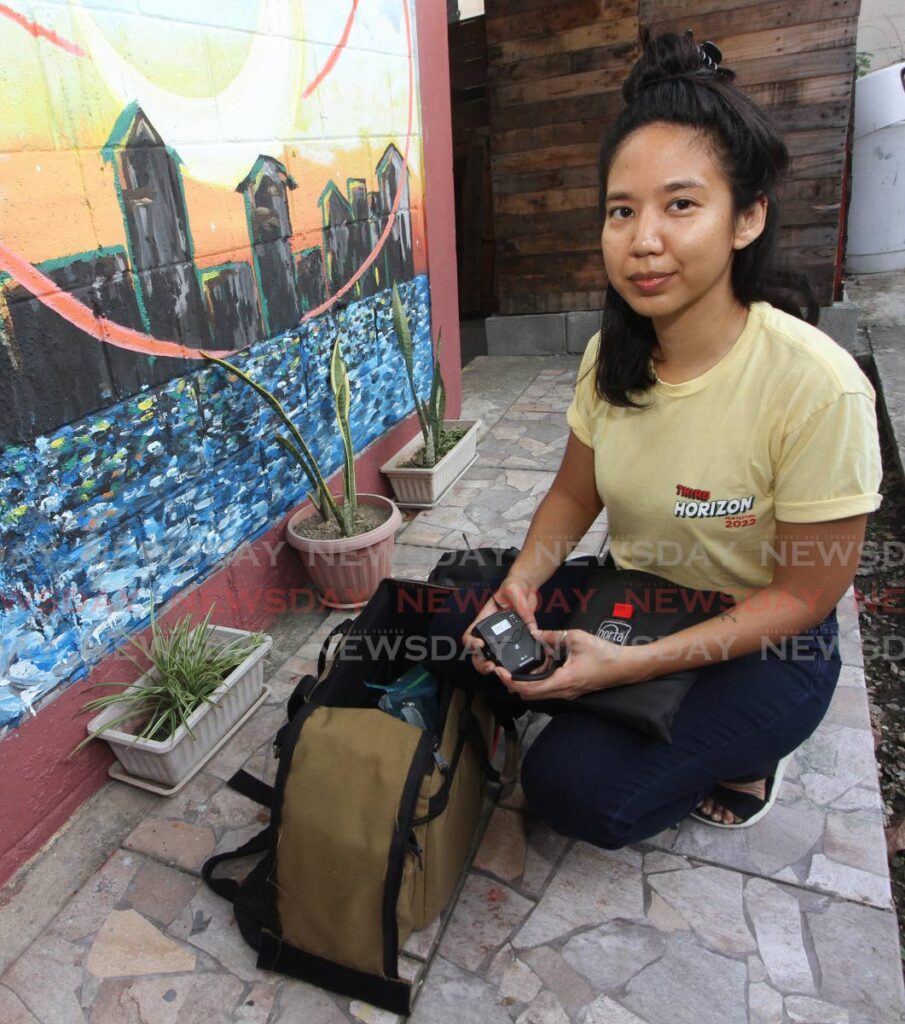Challenge of The Challengers: Filmmaker documents volleyball coach's lobby for Venezuelan players

In her new documentary, The Challengers, filmmaker Rhonda Chan Soo said she was drawn to the idea that everyday people can make a difference in the lives of others. And that through individual and collective action, we can create the kind of world we want to see.
Chan Soo, 34, describes The Challengers as a short documentary film telling the story of an “everyday hero,” volleyball coach Kanhai "Perry" Sirjoo, who is pushing for the integration of Venezuelan players into national volleyball leagues. It is a celebration of how inclusion and integration of refugees and migrants can benefit their host community.
Originally, the rules of the TT Volleyball Federation said only TT nationals were allowed to compete in tournaments. Sirjoo petitioned the board to change the rules, which they did. She explained that the United Nations High Commissioner for Refugees (UNHCR) had been working with The Challengers, which is a positive example of the power of sports for integration.
“After Nearest Neighbours (her 2019 documentary about the lives of Venezuelan refugees, asylum seekers, and migrants) I was in touch with the UNHCR and they were interested in collaborating to continue the work of storytelling on the experiences of the Venezuelan refugee and migrant community.”

The Challengers was funded by the UNHCR, UN Human Settlement Programme, and the UN’s International Organization for Migration, with the support of the European Union’s Inclusive Cities, Communities of Solidarity programme.
The aim of Inclusive Cities is to contribute to reducing the vulnerabilities of the Venezuelan community and increase the resilience of the host communities in which the project is being implemented.
Chan Soo added that the volleyball team has been beneficial because it provided Venezuelan migrants with an outlet.
“It’s an important source of community for them, sort of like a family. It’s an escape and a source of recreation. They support each other in different ways, using their network for finding work or if they are in need of food or any necessity. I can’t overemphasise the importance of that sense of belonging or having a community, which is exactly what the team provides for them.”
One local volleyball player told the film crew a lot of people he knew were sceptical of the Venezuelan refugees and migrants but, as he became more exposed to them through volleyball, he understood they were there for the love of the sport, that they are just like everyone else, trying to work hard to support their families, but their options were very limited.
“My passion is documentary film and storytelling so if there is a need, or there are certain stories and topics that come up and can be addressed, and there is a small amount of funding available to make the work, I’m happy to do it.”
Chan Soo said the topic of migration has a lot of significance for her, both personally and as a person from the Caribbean. She said she has recently been doing a lot more thinking and research into her personal history as her paternal grandfather and father are immigrants from China, and her mother is a descendant of East Indian indentured labourers.
“Also, being Trinidadian, with our ancestors coming from different corners of the world – some were enslaved, some as indentured labourers, and others who came to work on the plantations – migration is interconnected to our identity.
“So the influx of Venezuelan migrants is just the most recent phase of that. It is something that is not necessarily new, but is extremely relevant considering we haven’t really had to deal with such a large refugee situation in our recent history.”
She pointed out that the influx has resulted in xenophobia, even as the country grapples with how to successfully integrate the Venezuelans into society and take their human rights into consideration. She said it is important to remember that many Venezuelan refugees and migrants are here seeking safety and survival.
The Challengers can be viewed on the UN Trinidad & Tobago YouTube channel, has been submitted to several international film festivals and been accepted at three so far. There are also tentative plans for community screenings next year.
“We want to bring the film out to different communities in Trinidad, physical screenings where people can engage with the film and continue dialogue on the topic in real time.”

Chan Soo told Sunday Newsday her work is very project based, and she is usually working on two at a time, but it is very inconsistent work.
“It (being a filmmaker) is by no means a charmed life. There are a lot of sacrifices you have to make in terms of personal lifestyle – living a simple life, learning how to save money – because you don’t know how long a project would take to develop and you may not be making an income for a while.
“So it is definitely a field you have to go into because you care deeply about it and it brings you a large degree of fulfilment or satisfaction. In my case, the feeling that the work I’m doing is worthwhile and significant.”
Since Nearest Neighbours, she has been working on several non-fiction storytelling projects across different media and platforms, including as a communications specialist for an ecosystem-based adaptation project helping to increase the resilience of certain Caribbean islands to deal with the effects of climate change.
This year, she was a panel coordinator for the Third Horizon Film Festival in Miami where she helped conceptualise and execute the panel discussions.
And during the pandemic, she worked with the Green Market in Santa Cruz, managing their social media, and doing community-based storytelling. She said it helped with financial stability, which many people did not have at the time. The job also helped her weather the uncertainty of that time.
“While a lot of businesses were closed, the market was open so that provided a physical community base for me to go to every weekend. I had the opportunity to interact with people and it really made a huge difference.
“The isolation caused by the pandemic really brought home to me, and to all of us, the necessity of community. That is such a strong theme in The Challengers. The team provides this outlet to the very hardworking refugees, asylum seekers, and migrants who otherwise may be struggling to find their footing.”
Soo is currently “in development mode,” doing a lot of research on a new project, as well as figuring out what projects she would be working on next.

Comments
"Challenge of The Challengers: Filmmaker documents volleyball coach’s lobby for Venezuelan players"